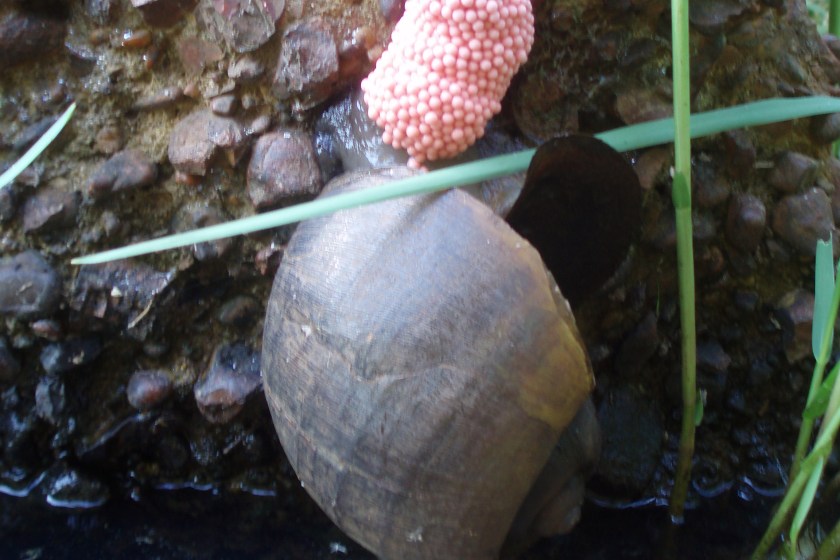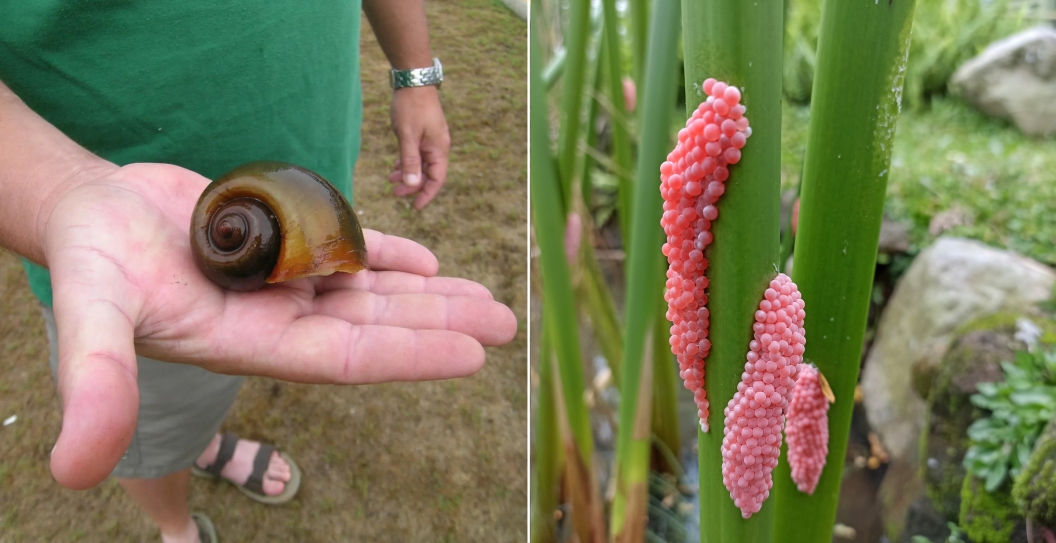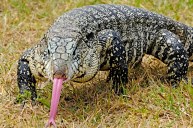The discovery of any new invasive species is never good news for the threat to our lakes and rivers, but the newest hanger-on found in the southeastern border of North Carolina is also a threat to humans: Officials have discovered an invasive snail from South America that is not only highly destructive to aquatic species but that can also cause serious harm in humans, including a deadly disease if eaten, according to North Carolina Wildlife Resources Commission.
The NCWRC was notified of the new snail species after a concerned citizen spotted one in the waters of Lumber River, near Lumberton, N.C., and sent in photographs of the snail and its egg clusters. The citizen's suspicions were verified by an NCWRC biologist after collecting samples and submitted them to the N.C. Museum of Natural Sciences. Indeed, these are apple snails.
The dangerous, invasive species native to South America can damage plants that native aquatic wildlife rely on, officials said. They also are known to eat amphibian eggs, posing a threat to those populations.
Additionally, they pose a threat to people: For one, the snail's eggs contain a toxin that can cause a rash to your skin and eyes if touched. The eggs are easily spotted in nature thanks to their bright pink color, but many unknowing people—especially kids—may try and touch the interesting-looking eggs.. The snails lay the eggs on flat surfaces like tree trunks, concrete, and vegetation, almost always above the waterline on the edges of lakes, rivers, and ponds.
What's more, the snails carry rat lungworm, which, according to officials, can cause a "potentially fatal disease in humans" if you eat the snails and don't cook them enough.

North Carolina Wildlife Resources Commission
The commission said this is the first time a population of apple snails had been found in North Carolina, but they have been found in other states, and they also have made it into parts of Europe and Asia.
Apple snails reproduce quickly since, after hatching, the snails drop into the water, growing up to six inches as they reach adulthood. That may seem small, but officials say that's much larger than the native species. The population grows quickly because females lay eggs once a week, guaranteeing a hearty population once they become established.
Officials recommend that people clean all of their water equipment, drain their boats, bait buckets, and equipment, and dry it thoroughly to stop the spread of these invasive snails.
READ MORE: Second Snake-Like Predatory Fish Found in Missouri Waters




